This is Why a Mother Cat Might Eat Her Newborn Kittens
Published: 2025. 05. 04 - Photos: Getty Images Hungary • 4 minutes reading

Published: 2025. 05. 04 - Photos: Getty Images Hungary • 4 minutes reading
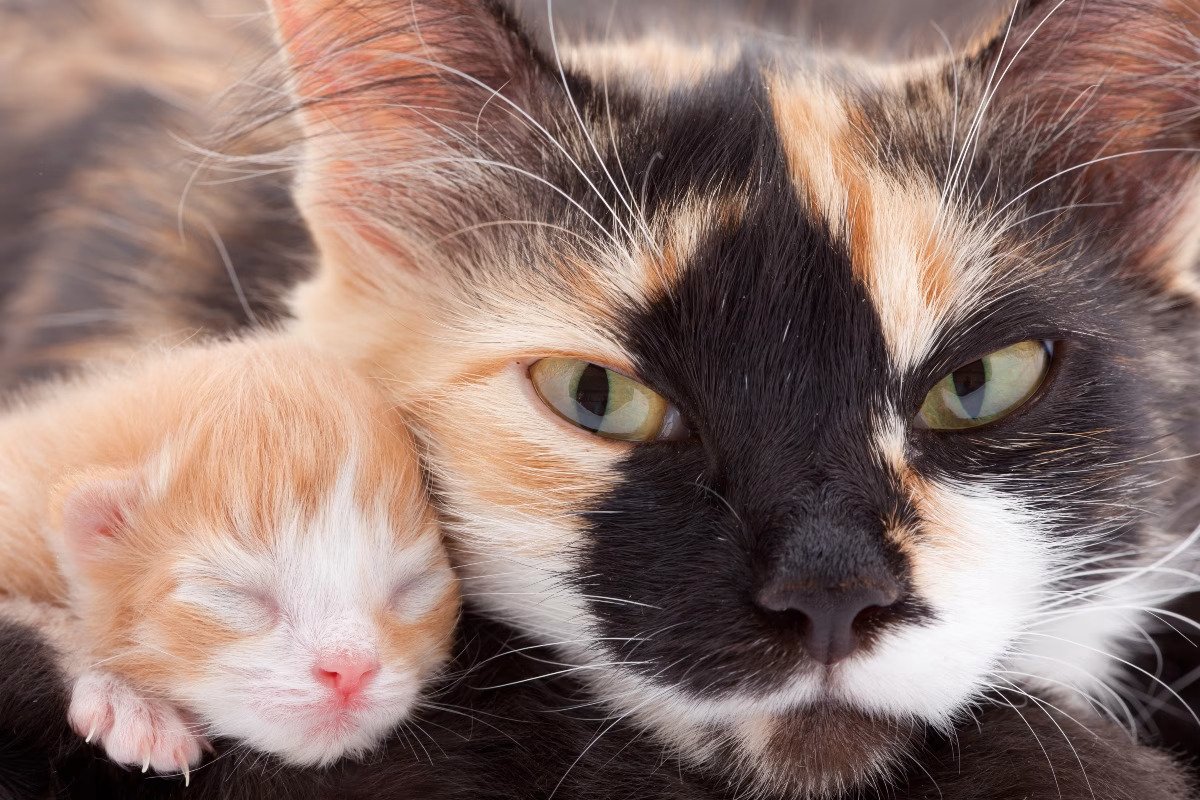
We always encourage everyone to have their pets neutered or spayed to avoid unwanted litters and potential diseases. However, it can happen that you realize this too late, or you end up with a pregnant cat.
Rarely, but it does occur, that the mother cat eats her newborn kittens. It’s unsettling to even think about, but it's important to talk about it, as there are certain triggers that can be prevented or reduced with proper attention.
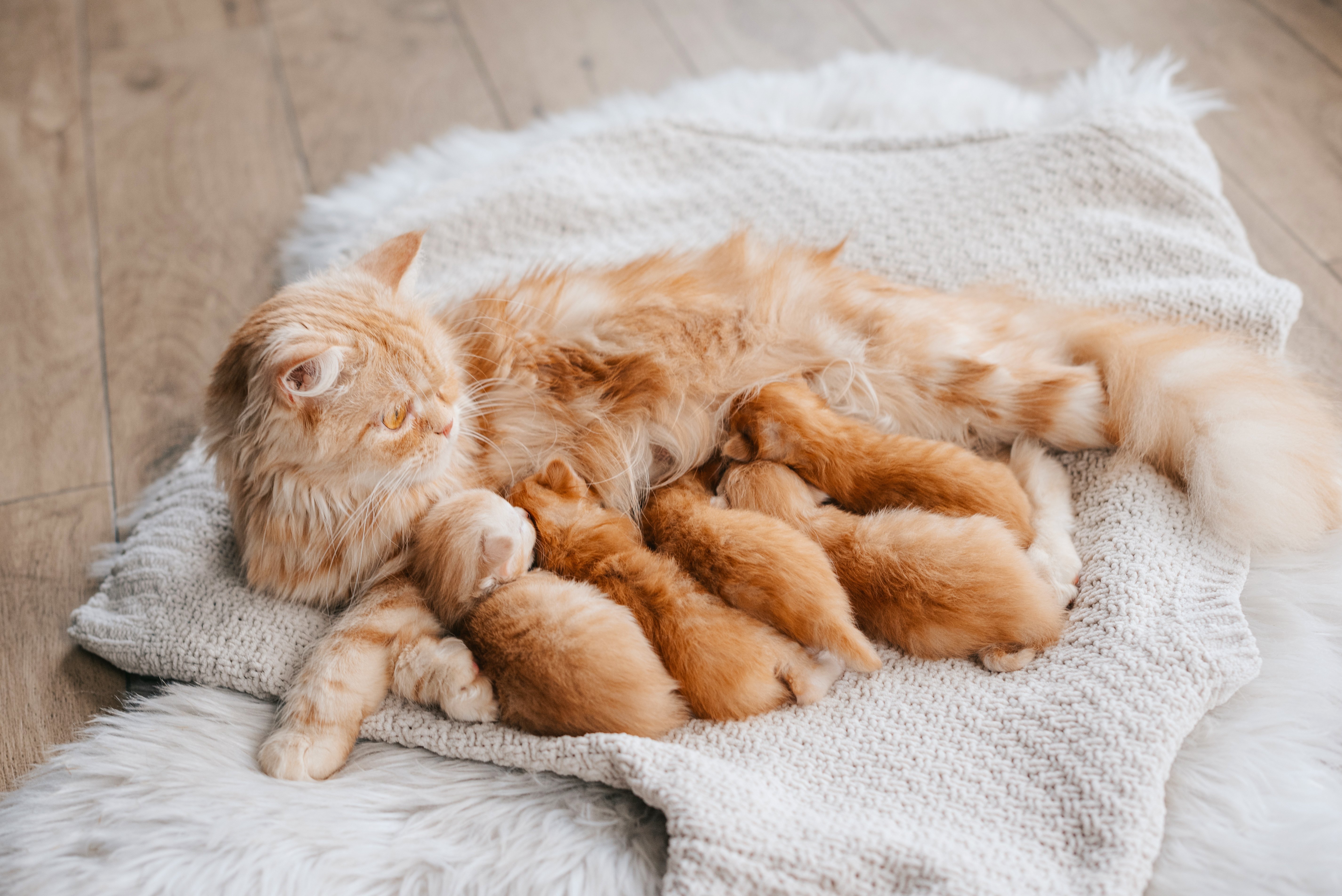 It's a rare phenomenon, but important to address
It's a rare phenomenon, but important to address
It is believed that some female cats may be genetically predisposed to eating their kittens. This can also occur in purebred cats, and if confirmed, the female is, of course, not used for further breeding and is spayed.
Very young or very old cats are more likely to exhibit this kind of behavior. (Remember, a cat can become sexually mature as early as 4 months old.) In such cases, the mother may not recognize the kitten as her own and perceive it as a threat, instinctively killing it.
According to research, the ideal age range for breeding is between 2 and 8 years – for larger breeds like the Maine Coon, breeding is preferable after 2 years of age, as large-bodied cats mature more slowly. Outside of this age range, unwanted behaviors are more likely.
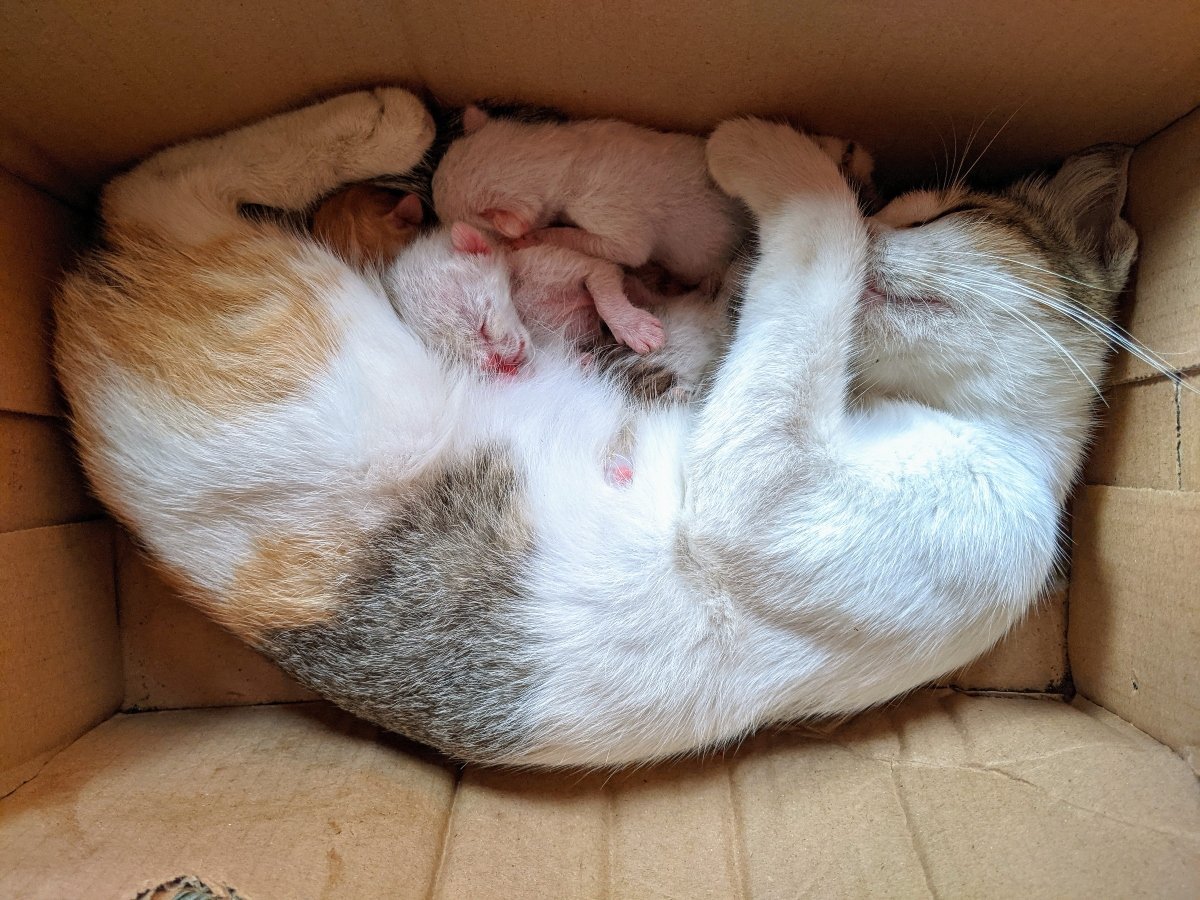 The cat may not recognize the kittens it has just born as its own
The cat may not recognize the kittens it has just born as its own
Although a kitten may appear normal, the mother often senses when something is wrong. If she determines that the kitten is not viable, she may eat it to prevent a corpse from remaining in the nest, which could attract predators.
A more common behavior is that she simply removes the unhealthy kitten from the litter and focuses on the others. This may seem cruel, but it has an evolutionary logic: the rest of the litter has a better chance of survival.
If you notice the mother regularly removing a kitten or ignoring its attempts to feed, gently take it out and consult a veterinarian about the possibility of hand-rearing. If the mother has already rejected the kitten, reintegrating it into the litter can be difficult.
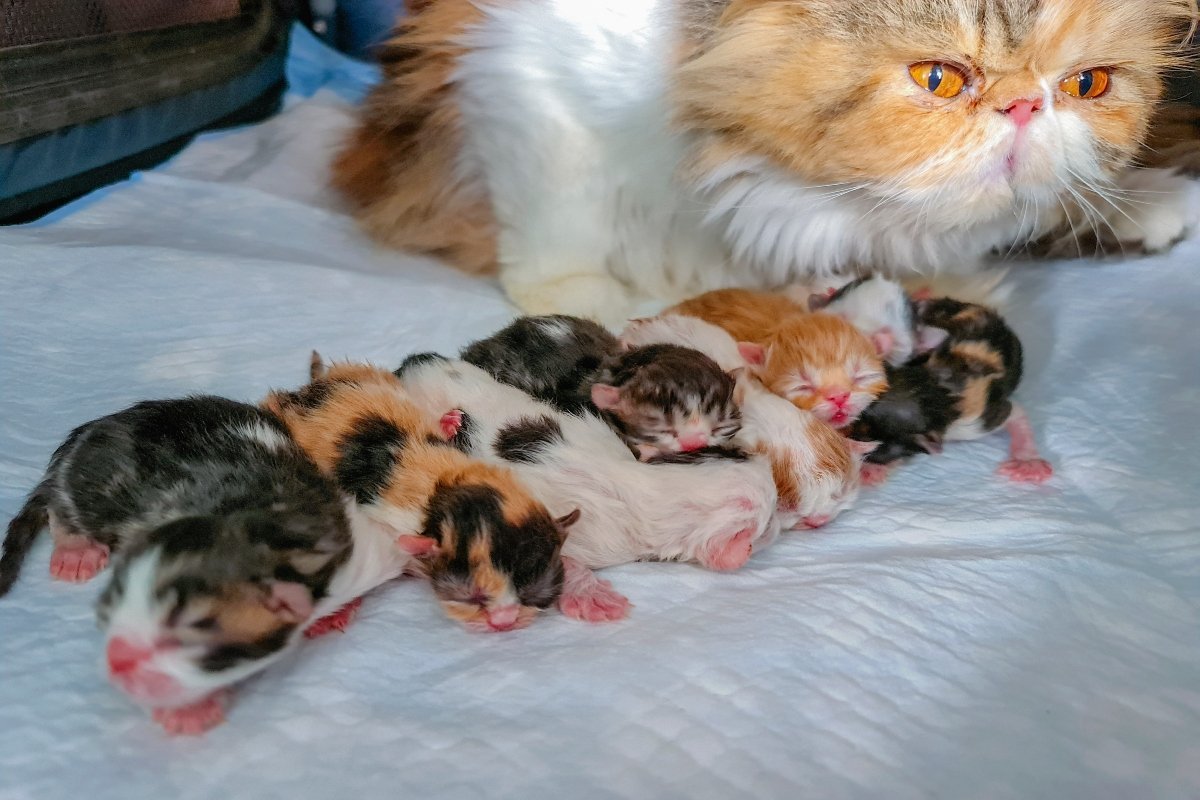 As owners, there are many things we can do to ensure that our pet feels safe even in such a vulnerable situation
As owners, there are many things we can do to ensure that our pet feels safe even in such a vulnerable situation
Stillborn kittens are nonviable at birth, and the mother cat often eats them. Several reasons may be behind this:
A mother may also eat a kitten that was born healthy but later died.
If the female feels threatened or stressed – due to the presence of other cats, pets, or even people – she may eat her kittens as a stress response. This is an instinctive behavior, particularly common during a first birth. More experienced mothers are less likely to behave this way.
It is very important for the mother cat to feel safe: she needs a quiet, undisturbed nesting area where she is not bothered by other pets or children. Always provide fresh water and offer high-quality kitten food when she leaves the nest. Ideally, place the food near the nest so she doesn’t feel she has to fight for resources.
Never punish the cat if this happens, as she is only following her instincts!
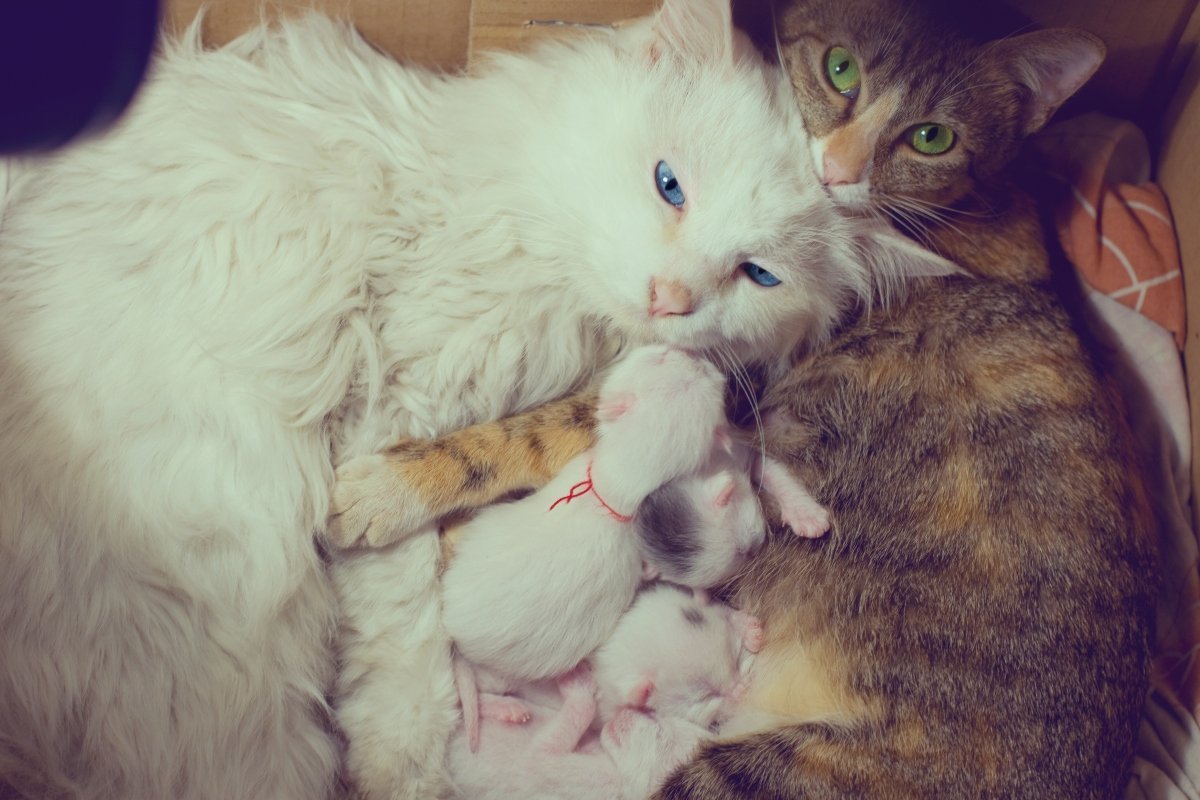 Never punish the cat if this happens, as it was just obeying its instincts!
Never punish the cat if this happens, as it was just obeying its instincts!
If the mother cat is not properly nourished and cannot provide enough fat reserves or nutrients for herself and her kittens, she may eat one or two of them to survive and ensure sufficient nourishment for the rest. In such cases, the mother instinctively recognizes that she cannot raise all the kittens and focuses on her own survival and supporting the remaining ones.
That’s why it is crucial to provide a plentiful, balanced diet during pregnancy and lactation. If the cat is losing weight during nursing, consult a veterinarian. Generally, in such cases the mo...
Do not punish her under any circumstances! This doesn’t mean she’s a bad mother — she’s simply following her instincts. It’s very important to observe what happens in the first 48 hours after giving birth: make sure all the kittens are okay, that they’re nursing properly, and that the mother is paying attention to them.
Signs of a caring mother cat:
If you think your cat has eaten one of her kittens, contact a veterinarian immediately. They can help determine the reason and advise you on how to protect the remaining ones. If any kitten seems sick or behaves abnormally, it should also be separated and shown to the vet.
Follow us!
facebook instagramRelated articles